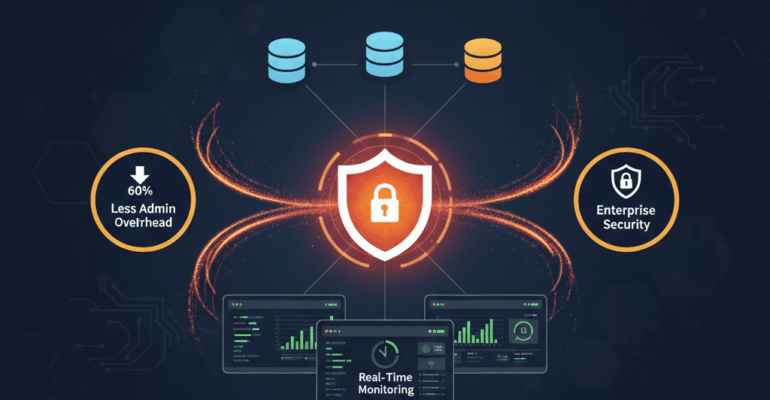
Transform Your Oracle GoldenGate Operations: The GoldenGateMCP Advantage
Transform Oracle GoldenGate operations with GoldenGateMCP. Reduce admin overhead by 60%, improve security, and gain real-time visibility. Schedule your assessment today.

Transform Oracle GoldenGate operations with GoldenGateMCP. Reduce admin overhead by 60%, improve security, and gain real-time visibility. Schedule your assessment today.

Remember when everyone said the cloud was just a fad? We’re hearing similar skepticism about AI in enterprise data management today. But here’s what I’ve learned after thirty years in technology leadership: the organizations that dismiss transformative technologies early often spend the most catching up

This week, I found myself deep in a familiar challenge – helping a client navigate the complexities of replicating Oracle Large Objects (LOBs) to Snowflake using Oracle GoldenGate. What started as a seemingly straightforward data integration project quickly revealed the nuanced technical considerations that separate

Modern AI and machine learning initiatives demand fresh data to deliver accurate predictions and actionable insights. While traditional batch ETL processes served us well in the past, today’s AI models require continuous data streams to maintain relevance and accuracy. The retail and supply chain industries

“Our Oracle databases are drowning in decades of business data, and our analysts are spending more time waiting for reports than analyzing them. We need to get this data into Snowflake for real-time analytics, but we can’t afford any disruption to our production systems.” Sound

If you work in the IT industry long enough, you start to see messaging or wording of items to repeat itself. In the case, we are going to take a look at the term “pipeline”. But what exactly is a “pipeline”? What is its purpose?

Does data drive your organization? Have you started your transition to a Modern Data Platform? Does your organization understand what it means or takes to transition to a Modern Data Platform? Yes, these are questions that organizations think they know the answer to until they

A data pipeline is a method in which raw data or unchanged data is ingested from various data sources and shipped to another data store, like a relational database, data lake, or a data warehouse; where the data is eventually used for analysis. Before data
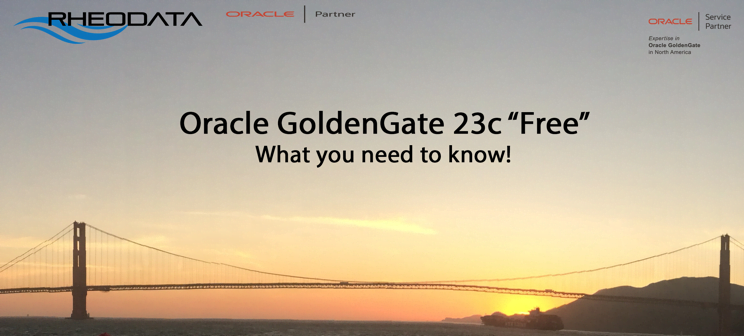
Last week at Oracle Cloud World, the Oracle GoldenGate Product team announced the latest version of Oracle GoldenGate “Free”! This release of Oracle GoldenGate was produced to enable developers and small (under 20GB) production environments to build Oracle GoldenGate in an automated fashion – actually
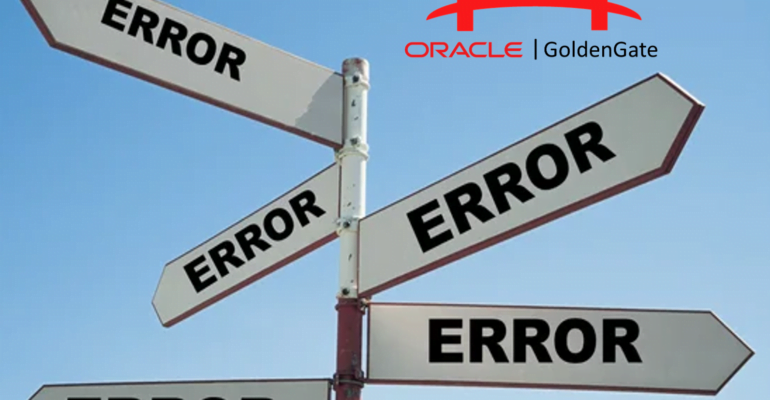
The error OGG-02028: Failed to attach to logmining server OGG$<extract_name> error #,### – ORA-01292 LogMiner for upstream capture cannot find log file – is an indication that the Oracle archive log file that is needed for the extract to start is missing. There are a
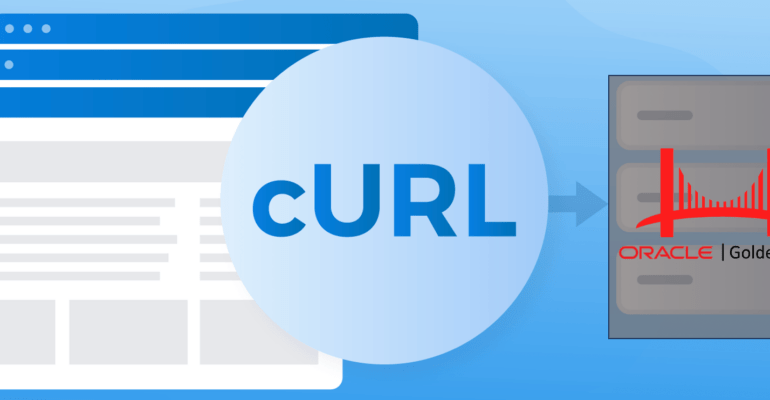
Oracle GoldenGate Service is Oracle’s cloud offering to quickly use GoldenGate to move data within OCI as well as other clouds. Now network connection and bandwidth has a bit to do with the speed of data being processed, but it a quick service over all.

Sometimes, you just want to run NGINX in unsecure mode (over port 80) for internal environments. The steps here are similar to what I posted some time ago in this post -> here. I’ll put these steps here as well and highlight (bold) which steps
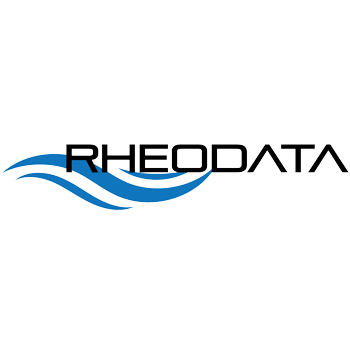
As we have done multiple engagements with Oracle GoldenGate and helped clients get the most out of their investment; we have realized that 90% of the parameter files we deal will are not structured in a way that makes sense. Traditionally, Oracle GoldenGate parameter files

Recently we have been talking with customers about their Oracle GoldenGate implementations and how these implementations can benefit their enterprise architecture. During these discussions, one thing that sticks out is the need for performance, performance tuning, and how that actually correlates to what is
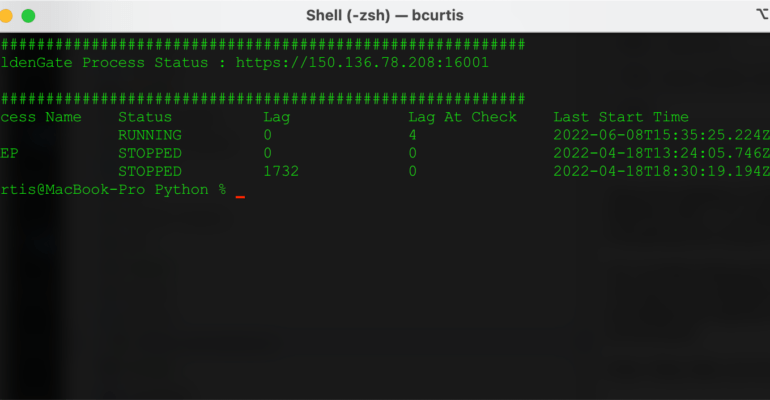
Since the release of Oracle GoldenGate 12.2 (Classic) and Oracle GoldenGate 12.3 (Microservices), users have been able to interact with Oracle GoldenGate using RESTful APIs. I’ve written about this interaction in previous posts. With the option to use RESTful APIs, the flexibility that is introduced
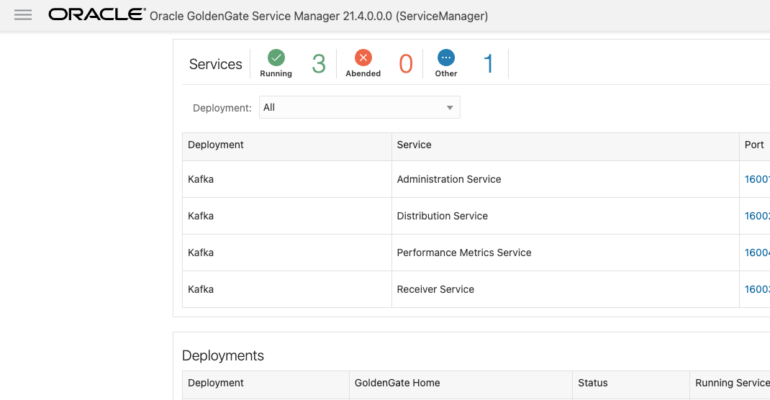
When installed, Oracle GoldenGat (Microservices) will set up “services” that require a port number for access. For the first run of the Oracle GoldenGate Configuration Assistant (OGGCA), the assistant will create the ServiceManager (1 port) and the first deployment (5 ports). That means six ports would need

In 2017, Oracle introduced the world to Oracle GoldenGate Microservices through the release of Oracle GoldenGate 12c (12.3.0.0.1). Upon the initial release, Oracle promoted the benefit of using the Microservices Architecture for new platforms and the ease of upgrading and patching. This document will show
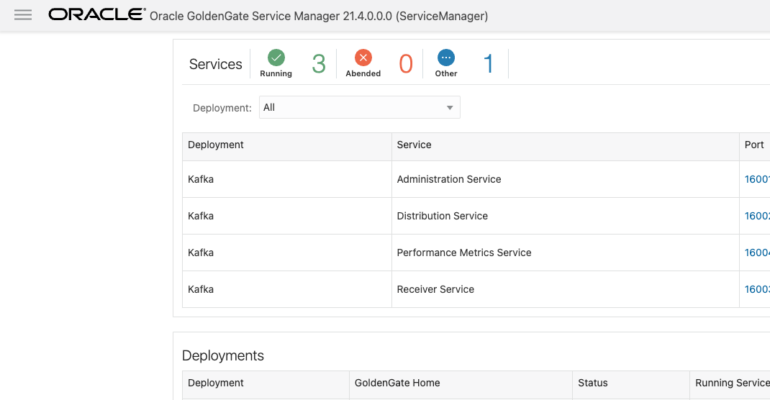
When installed, Oracle GoldenGat (Microservices) will set up “services” that require a port number for access. For the first run of the Oracle GoldenGate Configuration Assistant (OGGCA), the assistant will create the ServiceManager (1 port) and the first deployment (5 ports). That means six ports would need

For many using Oracle GoldenGate, there is a need to test out the desired configurations in a dev, test, or even a QA environment. This means there will be times where you will add, change, or delete different aspects of the Oracle GoldenGate processes. In

Quick tip for Bug 30193036: If you are having a problem with error messages filling up /var/log/*, you can minimize this by simply editing the ogg-audit.xml file. Here is the solution: 1. Make a backup of $OGG_HOME/diretc/logging/ogg-audit.xml or comment out the line mentioned below. 2.